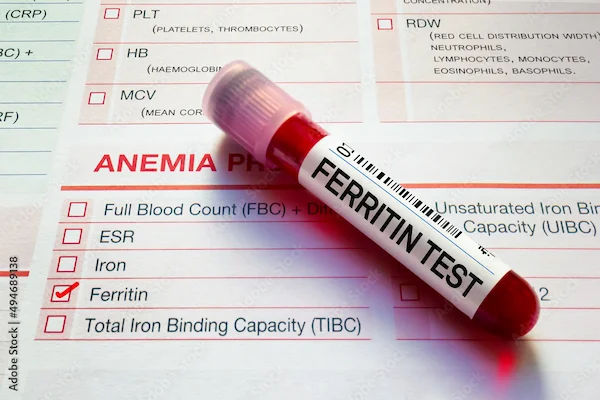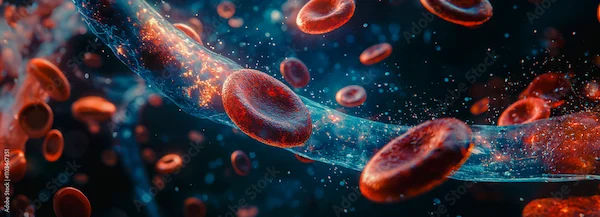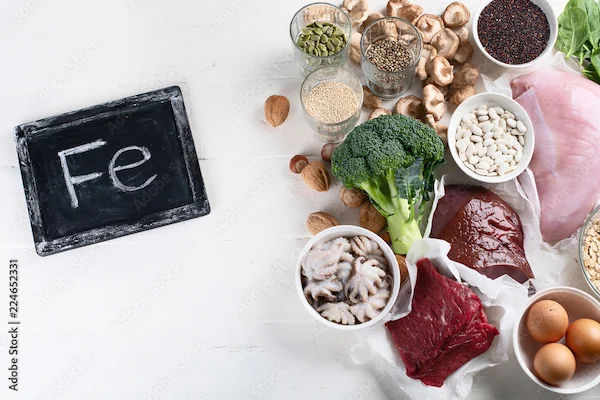Causes of Anemia During Pregnancy
Learn about the common causes of anemia during pregnancy, its effects on mother and baby, and how to prevent and manage it with diet, supplements, and regular check-ups.


Pregnancy is a beautiful journey, but it also brings many changes to a woman’s body, including an increased risk of anemia. Anemia occurs when your blood lacks enough healthy red blood cells to carry oxygen to your tissues and your growing baby. If you're pregnant and feeling unusually tired or weak, you might be experiencing anemia.
Let’s explore the common causes of anemia during pregnancy, how it affects you and your baby, and what you can do to manage it effectively.
What Causes Anemia During Pregnancy?
Anemia during pregnancy can happen due to several reasons. The most common causes include:
1. Iron Deficiency (Most Common Cause)
Iron is essential for making hemoglobin, the protein in red blood cells that carries oxygen. During pregnancy, your body needs double the amount of iron to support your baby’s growth and your increased blood volume. If your diet lacks iron-rich foods or your body doesn’t absorb enough iron, you may develop iron-deficiency anemia.
2. Folate (Vitamin B9) Deficiency
Folate (or folic acid) is crucial for preventing birth defects and producing healthy red blood cells. Since pregnancy increases folate requirements, a deficiency can lead to megaloblastic anemia, where red blood cells become abnormally large and ineffective.
3. Vitamin B12 Deficiency
Vitamin B12 helps in red blood cell formation and nerve function. Some women may not get enough B12 from their diet (especially vegetarians/vegans), or their bodies may not absorb it properly, leading to anemia.
4. Increased Blood Volume
During pregnancy, your blood volume expands by up to 50%, but red blood cell production may not keep up. This dilutional effect can cause physiological anemia, which is usually mild but may worsen if other deficiencies exist.
5. Chronic Diseases
Conditions like kidney disease, autoimmune disorders, or infections can interfere with red blood cell production, leading to anemia.
6. Blood Loss
Heavy menstrual bleeding before pregnancy or complications like placenta previa (bleeding during pregnancy) can contribute to anemia.
Consult Top Specialists
How Does Anemia Affect You and Your Baby?
Mild anemia may not cause noticeable symptoms, but if left untreated, it can lead to:
- Extreme fatigue and weakness
- Dizziness or shortness of breath
- Pale skin, nails, or gums
- Rapid or irregular heartbeat
- Difficulty concentrating
For your baby, severe anemia increases the risk of:
- Premature birth
- Low birth weight
- Developmental delays
- Higher risk of anemia in the baby after birth
How Can You Prevent and Manage Anemia During Pregnancy?
1. Eat Iron-Rich Foods
Include these in your diet:
- Lean meats, poultry, and fish (heme iron, easily absorbed)
- Spinach, lentils, beans, and fortified cereals (non-heme iron)
- Vitamin C-rich foods (oranges, tomatoes, bell peppers) to boost iron absorption.
2. Take Prenatal Vitamins
Your doctor may prescribe iron and folic acid supplements to meet increased demands.
3. Get Regular Blood Tests
Prenatal check-ups include hemoglobin and ferritin tests to monitor anemia. If levels are low, your doctor may adjust your supplements.
4. Avoid Iron Blockers
Tea, coffee, and calcium-rich foods can interfere with iron absorption. Have them at least 2 hours apart from iron-rich meals or supplements.
5. Stay Hydrated & Exercise Moderately
Gentle activities like walking improve circulation, but avoid overexertion if you feel weak.
When to See a Doctor?
If you experience:
- Severe fatigue or breathlessness
- Frequent dizziness or fainting
- Pale skin or rapid heartbeat
Consult your doctor immediately. Early detection and treatment can prevent complications.
Take Charge of Your Health with Apollo 24|7
If you're pregnant and concerned about anemia, Apollo 24|7 makes it easy to:
- Book a consultation with a gynecologist
- Get blood tests done at home
- Access expert advice on prenatal care
Don’t ignore the signs; your health and your baby’s well-being depend on it!
Conclusion
Anemia during pregnancy is common but manageable with the right nutrition, supplements, and medical care. By recognizing the symptoms early and taking preventive steps, you can protect your health and support your baby’s development.
Consult Top Specialists
Consult Top Specialists

Dr. Sridevi Matta
Obstetrician and Gynaecologist
28 Years • MS ( OBG ), DGO, DNB Obstetrics & Gynaecology
Chinagadila
Apollo Hospitals Health City Unit, Chinagadila
(175+ Patients)

Dr. Asha Rani Singh
Obstetrician and Gynaecologist
24 Years • MBBS DGO
Delhi
Dr Asha Rani Singh Clinic, Delhi

Dr. Mona Yadav
Obstetrician and Gynaecologist
19 Years • MBBS, MD (Obstetrics & Gynaecology)
Dombivli
Nulife multispeciality, Dombivli

Dr. Parul Sharma
Obstetrician and Gynaecologist
8 Years • MBBS, MS (Obstetrics & Gynaecology)
New Delhi
THE DOCTORS NESST, New Delhi
Dr. K Anusha
Obstetrician and Gynaecologist
4 Years • MBBS, DGO
Yemmiganur
SRINIVASAA HOSPITAL, Yemmiganur
Consult Top Specialists

Dr. Sridevi Matta
Obstetrician and Gynaecologist
28 Years • MS ( OBG ), DGO, DNB Obstetrics & Gynaecology
Chinagadila
Apollo Hospitals Health City Unit, Chinagadila
(175+ Patients)

Dr. Asha Rani Singh
Obstetrician and Gynaecologist
24 Years • MBBS DGO
Delhi
Dr Asha Rani Singh Clinic, Delhi

Dr. Mona Yadav
Obstetrician and Gynaecologist
19 Years • MBBS, MD (Obstetrics & Gynaecology)
Dombivli
Nulife multispeciality, Dombivli

Dr. Parul Sharma
Obstetrician and Gynaecologist
8 Years • MBBS, MS (Obstetrics & Gynaecology)
New Delhi
THE DOCTORS NESST, New Delhi
Dr. K Anusha
Obstetrician and Gynaecologist
4 Years • MBBS, DGO
Yemmiganur
SRINIVASAA HOSPITAL, Yemmiganur




